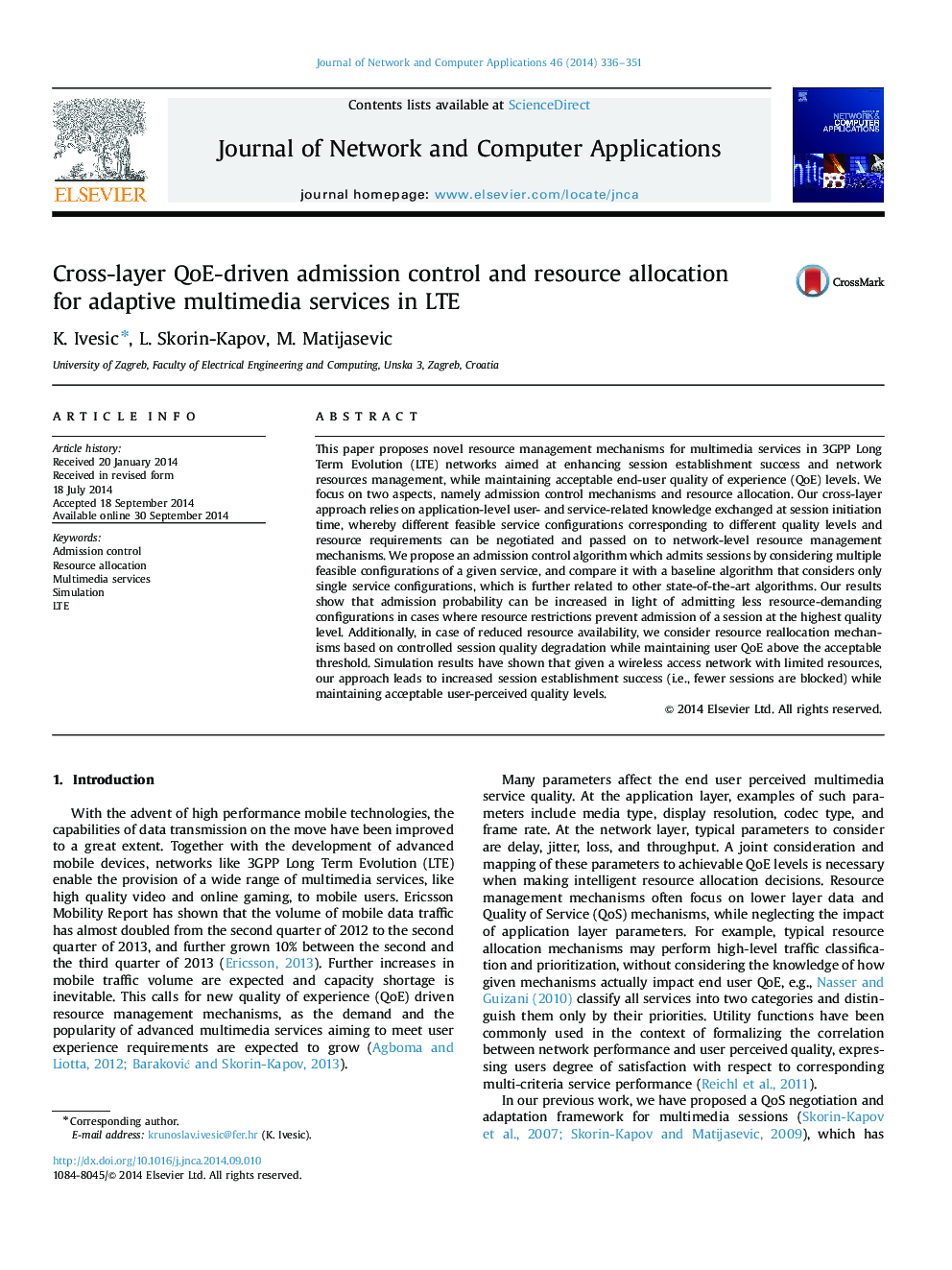| Article ID | Journal | Published Year | Pages | File Type |
|---|---|---|---|---|
| 457303 | Journal of Network and Computer Applications | 2014 | 16 Pages |
This paper proposes novel resource management mechanisms for multimedia services in 3GPP Long Term Evolution (LTE) networks aimed at enhancing session establishment success and network resources management, while maintaining acceptable end-user quality of experience (QoE) levels. We focus on two aspects, namely admission control mechanisms and resource allocation. Our cross-layer approach relies on application-level user- and service-related knowledge exchanged at session initiation time, whereby different feasible service configurations corresponding to different quality levels and resource requirements can be negotiated and passed on to network-level resource management mechanisms. We propose an admission control algorithm which admits sessions by considering multiple feasible configurations of a given service, and compare it with a baseline algorithm that considers only single service configurations, which is further related to other state-of-the-art algorithms. Our results show that admission probability can be increased in light of admitting less resource-demanding configurations in cases where resource restrictions prevent admission of a session at the highest quality level. Additionally, in case of reduced resource availability, we consider resource reallocation mechanisms based on controlled session quality degradation while maintaining user QoE above the acceptable threshold. Simulation results have shown that given a wireless access network with limited resources, our approach leads to increased session establishment success (i.e., fewer sessions are blocked) while maintaining acceptable user-perceived quality levels.
Graphical abstractFigure optionsDownload full-size imageDownload as PowerPoint slide
